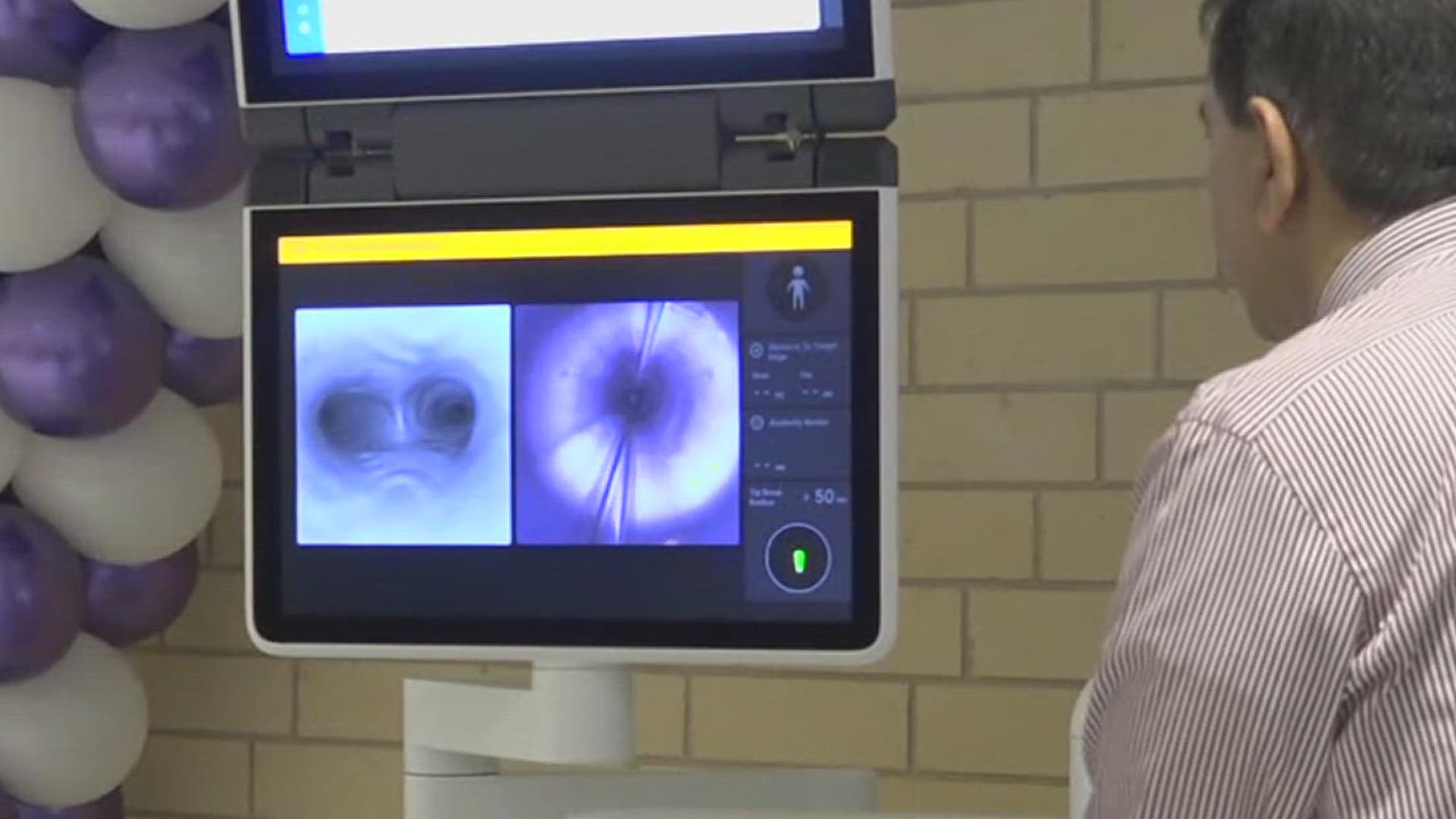CORPUS CHRISTI, Texas — Lung cancer is the leading cause of cancer-related deaths in the United States, claiming over 125,000 lives each year.
As Lung Cancer Awareness Month continues, CHRISTUS Spohn Health System is highlighting the critical importance of early detection and innovative treatments that can significantly improve survival rates.
According to the Cleveland Clinic, the overall five-year survival rate for lung cancer is just under 23%. However, early diagnosis can significantly increase those odds. Dr. Rajeev Narang, a pulmonologist at CHRISTUS Spohn, stresses that identifying lung cancer at its earliest stage can make a difference.
"If we diagnose lung cancer at stage 1, the chances of survival increase dramatically," Dr. Narang said. "For example, if we catch the cancer at stage 1A, the survival rate could be as high as 92%."
A key tool in early detection is CHRISTUS Spohn’s newest technology: the Ion Robotic Navigational Bronchoscopy system. This minimally invasive device allows doctors to detect and biopsy small lung nodules that may be missed through traditional methods. According to Dr. Narang, this technology enables more precise biopsies, often reducing the need for multiple procedures.
"We can target very small lung nodules, some smaller than a centimeter, and biopsy them successfully," he said. "This technology makes a big difference for patients, allowing us to diagnose cancer earlier and start treatment that can lead to a cure."
Dr. Rama Krishna Chakilam, another pulmonologist at CHRISTUS Spohn, added that the robotic system also saves patients' time.
"With this technology, we can do everything in one set up rather than the patient goes through multiple procedures. That's also very important," Dr. Chakilam said.
Gary Blumberg is just one patient who has recently benefited from the new technology. After a CT scan earlier this year revealed a small nodule in his right lung that Dr. Narang found to be suspect, Blumberg underwent a biopsy using the Ion system.
"I went back in June or July. They used the robot this time and it was negative. Both biopsies came back negative, so I’m happy with that," Blumberg said.
With Blumberg being a long-time smoker, Dr. Narang advised him to quit. That's something that Blumberg says has made him feel great since he's stopped.
He only has one message to those at high risk of lung cancer who are on edge about receiving their first lung screening.
"Do it. The sooner you get it diagnosed, if you have cancer, then it's a whole lot easier to treat," he said. "If you don't then it's the not knowing is what tears you up."
More from 3News on KIIITV.com:
- Family mourns loss of 2 family members in Lake Corpus Christi drowning
- Alice student contracts communicable disease, city official tells 3NEWS illness is tuberculosis
- Free admission to 3 local museums for the holidays starting Friday
- Island cyclist accident spurs calls for road improvements
- Family describes the events that led up to 4-month-old Ailani Castro's death
- Uncovered pipe leads to injury downtown
- Sinton's Anthony Banda can now call himself a World Series champion
Subscribe to our YouTube channel for your daily news and exclusive extended interviews.
Do you have a news tip? Tell 3!
Email tell3@kiiitv.com so we can get in touch with you about your story should we have questions or need more information. We realize some stories are sensitive in nature. Let us know if you'd like to remain anonymous.

